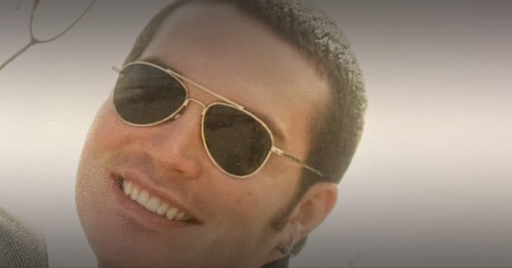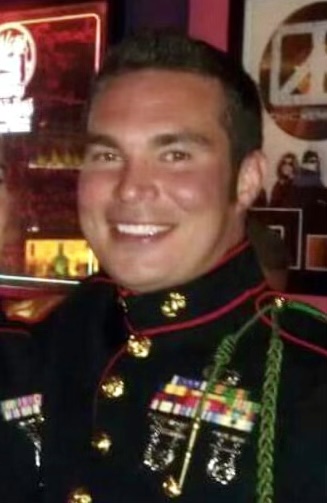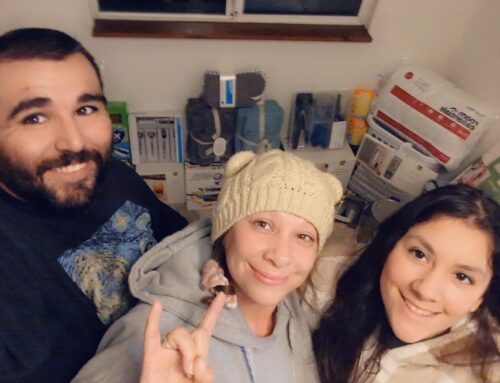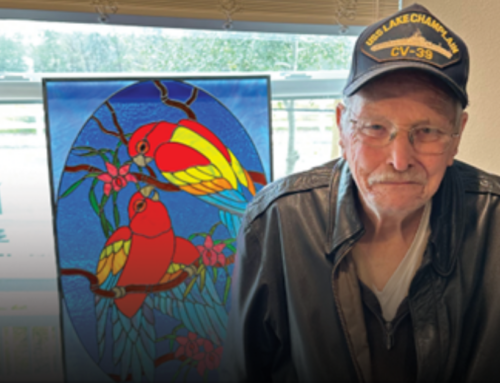
One suicide is one too many. But for United States Veterans, the staggering reality is that there are around 17 suicides per day. That’s more than 6,000 lives lost per year due to Veteran suicide.
During National Suicide Prevention Month, it’s crucial that we address the truth: Veteran suicide demands our immediate attention and action. These aren’t just statistics; they represent the shattered pieces of friends, families, and communities left incomplete.
Life Before Service: A Natural Hero
In the heart of Illinois, Matt grew up in a house that his family felt a deep connection to: they built it themselves. A high school football star and avid wrestler, Matt was the family’s eldest son and a protective leader in the household. “There was one day when Matt and his dad were working up around the roof,” recalls his stepmother Pam, the family matriarch. “Matt’s father fell off a ledge and Matt caught him from the second floor.”
This act of heroism was not an isolated incident. Like many Midwest families on warm, summer days, the seven children and two parents were out boating on a nearby lake one afternoon. Then, silence. There was an issue with the boat. It wasn’t repairable, leaving the family helpless on the water. But Matt, a bright and confident teenager, knew what to do. He jumped into the water, grabbed hold of the boat, and pulled his eight family members back to the shore.
“Matt was always our protector,” his youngest sister, Megan, explained while reflecting on moments like these. “He loved his family.” It was this love and determination that defined Matt throughout his life, even in the face of difficulty.

The Sacrifice it Takes to Serve
Matt was always a guardian for those closest to him. When he fulfilled his childhood dream of joining the Marines, Matt became a protector for complete strangers as well.
“He was so excited to join the military,” his sister Lisa recalled. “He left the day after he graduated from high school.” Matt served from 1999-2006, completing multiple tours in Iraq and Afghanistan, where the young man added a vast array of military decorations to the football and wrestling trophies he collected with his family cheering him on from the bleachers.
His new decorations, however, were earned differently than those athletic awards. If a football player drops a pass, they can center themselves and bounce back on the next play. If an assignment goes wrong on the battlefield, there isn’t always a next play. The process of centering oneself isn’t as straightforward as stepping off to the sidelines and taking a deep breath. Sometimes it takes years of deep breaths to find peace. Sometimes that peace is never found.
Trauma in the military can be induced by a variety of common factors, including:
- Combat exposure
- Deployment stressors
- Sexual trauma
- Injury or physical trauma
- Loss of comrades
- Post-deployment adjustments
During Matt’s second tour, the Marine became what many youngsters dream of growing into: a hero leading other brave soldiers on an important mission.
But an explosion took the lives of soldiers following him. “He wasn’t much of a sharer,” Matt’s Dad sniffled and said about his oldest son. Pam sat next to her husband and stared down at the table. “I don’t think he ever came to terms with what happened there.”
Effects of Deployment on Veterans’ Mental Health

After completing his service, Matt yearned for the chance to be a hero again.
He got an EMT certification, became a paramedic, and moved to California, where he worked in an area ravaged by wildfires. Despite his new, seemingly stable life out West, Matt made an effort to come back to Illinois when he could. To visit his family in the house he helped build.
The Veteran would play with his nieces and nephews on the winter slopes he grew up sledding down. He would trade stories with his new brothers-in-law, who he loved as siblings. He called his grandmother every Monday and picked out Mother’s Day cards for his sisters and Pam every year, handwriting personal notes for his loved ones. “He just had a kind heart like that,” Megan said. To someone looking at Matt’s life from the outside, all seemed well.
But beneath the mask he put on for his family, all was not well. Matt would imply to his family that everything was fine, but in reality, he was struggling to cope with the pain he felt from his service.
Understanding the Causes of Veteran Suicide
But why? Why would Matt hide his struggles from those closest to him?
There is a dangerous stigma that surrounds seeking help for mental health issues. This taboo is often hard for those struggling with mental health issues to work around. “As a man, I think he felt he should be able to manage,” Pam acknowledged as a reason for Matt’s silence. The idea is that men are supposed to be tough. They’re supposed to be able to deal with their problems on their own and stay strong.
For Veterans, the protectors of our country and heroes who keep us safe, this stigma is even more prevalent. No one who puts their life on the line to keep people safe wants to let others see a perceived weakness. “Mental health is nothing to be embarrassed about,” Lisa believes. “But he felt he could not share his struggles with us.”
On July 3rd, 2023, the day before Americans everywhere gathered to celebrate our country and those like Matt who have fought for it, Matt’s battle with PTSD became too much. He took his own life.
“We don’t talk about our mental health enough,” Megan stated with conviction.
The stigma surrounding seeking treatment for mental health amongst Veterans is costing brothers, sons and loved ones their lives. The fear of seeming weak prevents those facing difficulties from taking the necessary steps to address their mental health needs.
As a society, we must work together to eliminate this stigma for the sake of those who are losing their lives because of it. For more winter mornings on sledding hills. For more summer afternoons on the lake. For more Autumn nights with family that will cherish their loved ones as the heroes they are regardless of the demons they’re fighting inside.
How You Can Support Veterans at Risk of Suicide
How can we reduce Veteran suicide rates? “Our society needs to be more proactive than reactive,” Pam believes.
Here’s how we can all be more proactive to help end Veteran suicide:
- Raise Awareness: Talk openly about the issue of veteran suicide and mental health. By reducing the stigma, we can encourage Veterans to seek help when needed.
- Support Legislation: Advocate for policies and legislation that improve access to mental health care and support for Veterans.
- Volunteer: Many organizations, not just Nation’s Finest, rely on volunteers to provide support and assistance to Veterans. Consider donating your time and skills.
- Be There: Offer your shoulder for support, guidance, and a listening ear to Veterans at all stages of their journey. Your experience and advice can make a big difference in their lives.
- Foster Inclusivity: Ensure that Veterans are included and welcomed in communities. Social support is vital for their mental well-being.
- Educate Yourself: Learn about the challenges Veterans face, such as PTSD and the difficulties of transitioning to civilian life. Understanding these issues can lead to more empathy and support.
Organizations are fighting to provide that proactive help and are connecting our Veterans to the resources necessary to help them transition back to civilian life. For a time, Matt did seek help without his family’s knowledge and made progress. One organization that he sought help from for his addiction recovery was Nation’s Finest. A nonprofit organization with a mission to help guide our Veterans home, Nation’s Finest offers an array of supportive services for Veterans and their families.
During Matt’s time with us, he received nonclinical case management, emergency housing assistance, and emergency food assistance. Remembering Matt, a member of our team in Chico, CA said that “Matt was kind and respectful always in our office. He was goal oriented and worked hard in our program. He often came in to charge his phone and just be around others in our office.”




